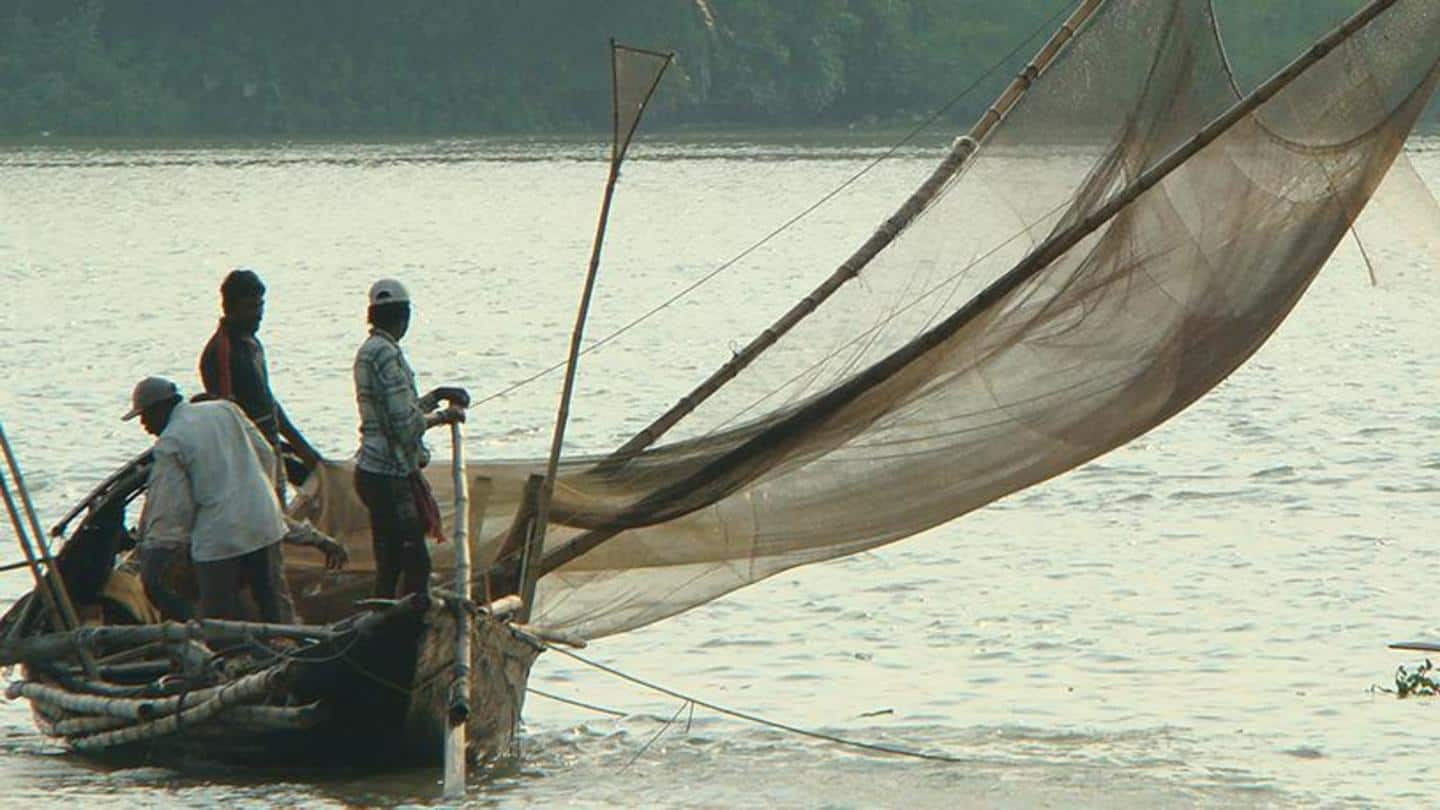
Bengal fishermen net year's first Hilsa haul
What's the story
Fishermen in South 24 Parganas district in West Bengal have netted this year's first Hilsa fish haul of around 400 kg in the last two days, an office-bearer of a fishermen's organization had said on Sunday.
Some trawlers from West Bengal's Kakdwip, one of the largest fishing hubs in the state, have netted the haul.
Quote
Of 200-250 trawlers, eight-nine netted around 50 kg fish each
"Of the 200-250 trawlers venturing into the mouth of Hooghly River, eight-nine netted around 50 kg fish each," Bijan Maity, General Secretary of Kakdwip Matsya Unnayan Samity, the apex body of fishermen and trawler owners in the area, told PTI.
Weight
Most of the caught fish weighed between 650-800 gm: Maity
Noting that this time of the year is conducive to catch Hilsa as the fish swims into the river from the sea to lay eggs, Maity said most of the caught fish weighed between 650-800 gm, while some were heavier than 1 kg.
Maity said fish shorter than 23 cm or weighing below 600 gm are released into the water.
Hilsa haul
Hilsa haul has fallen drastically due to cyclones and pollution
"We hope that yield will increase in the next few days due to conducive weather conditions," he said.
Maity said the number of trawlers venturing into the sea to catch Hilsa has dipped by 50 percent, from around 5,000 in 2018-19 to 2,500 in 2020-21.
"The Hilsa haul has come down drastically due to factors like climate change, frequent cyclones, and pollution," he said.
Registration
Most trawlers are unable to recover the costs
"The diesel price rise has also increased the monthly cost of operating a trawler from Rs. one lakh to Rs. 1.5 lakh," Maity said, adding not many are able to recover the costs due to lesser yield.
Besides registration, every trawler must have a remote-sensing distress device connected with the Coast Guard and can have a maximum of 17-18 fishermen on board.
Fish conservation
Fishermen are being sensitized toward not catching small Hilsa
Senior TMC leader from Kakdwip, Manturam Pakhira, said that many small trawlers catch small Hilsa, an act prohibited by both the Centre and the state government, and fishermen are being sensitized to discontinue the practice to conserve the fish.
"This is a challenge as over 40 percent of the inhabitants of Kakdwip depend on fishing in some way or the other," he added.